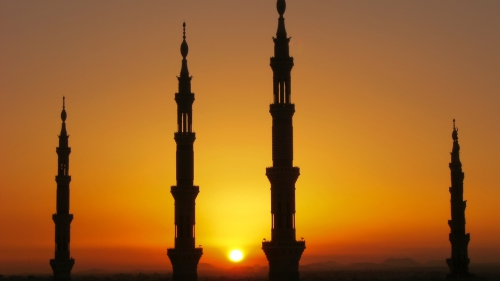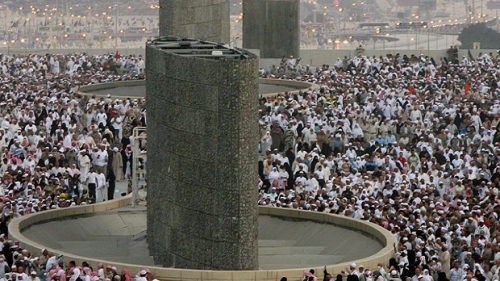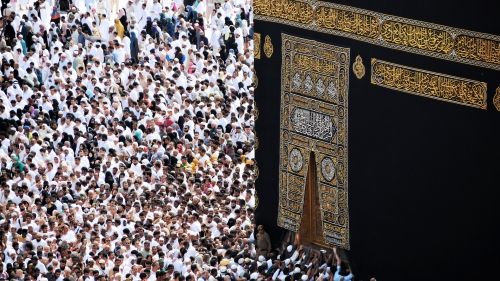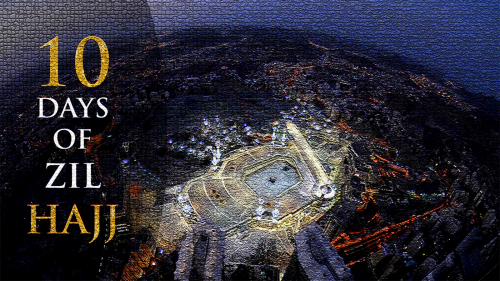Was the 76th UN General Assembly Session all About 'Blah blah blah'?
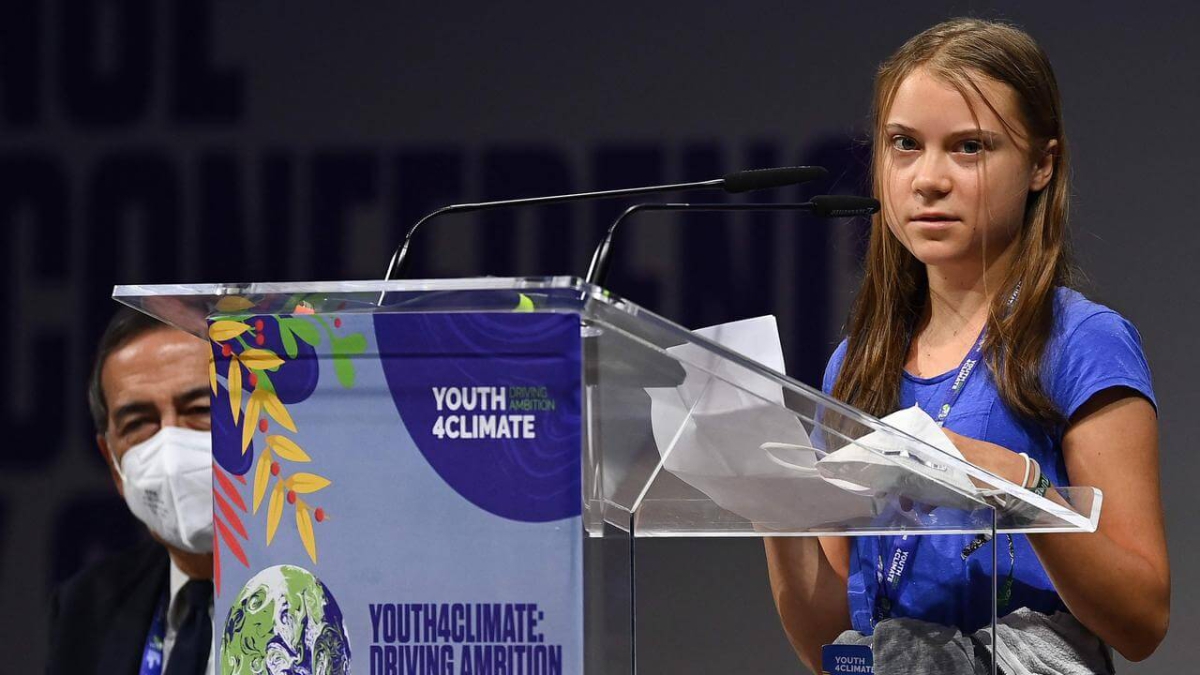
We live in an interesting time. No time before has the world faced a crisis of this magnitude of a global pandemic, climate change, migration, conflicts and unending wars. More than a quarter billion people has been infected with the corona virus, which has already killed five million people across the globe; in the USA alone the death toll has surpassed 700,000. Tens of millions of people are forced to migrate from their homes for a plethora of reasons. Governments across the planet have become more authoritarian, often abusing people’s right and trust, and misusing national wealth for personal gratification. Conflicts, crimes and corruption are all-time high.
Research published recently showed that children born today would experience many times more extreme heatwaves and other climate disasters over their lifetimes than their grandparents, even if countries fulfil their current emissions pledges.
Are our children doomed for a worse future than their parents?
Do the world leaders have a strategy to deal with these issues?
The 76th session of the United Nations General Assembly (UNGA) opened on September 21, 2021 with the theme, “Building resilience through hope – to recover from COVID-19, rebuild sustainably, respond to the needs of the planet, respect the rights of people, and revitalize the United Nations.” Unlike previous years, some of the events were held virtually.
Antonio Guterres, Secretary-General of the UN, said, “The COVID-19 pandemic dominated the past year, around the globe and at the United Nations. We are a world in mourning for the millions of people we have lost. The pandemic is the greatest shared global challenge since the founding of our organization; every country has faced pain, uncertainty and vulnerability. The global health, social, economic and human rights crises triggered by the pandemic have underscored the importance of multilateral cooperation – and tested it to the limit.” He said that “the world was in danger of increased geopolitical divisions that are undermining international cooperation and called on countries to come together to end conflicts, including in the Middle East.” "In places like Yemen, Libya, and Syria, we must overcome stalemates and push for peace," Guterres said. On Israel and Palestine, Guterres urged "leaders to resume a meaningful dialogue recognizing a two-state solution as the only pathway to a just and comprehensive peace".
The weeklong event brought heads and representatives of many member states to the UN building in Manhattan, New York. Amongst other dignitaries, Joe Biden of the USA, Sheikh Tamim bin Hamad Al Thani of Qatar, Recep Tayyip Erdogan of Turkey, and Xi Jinping of China spoke on the first day.
As has become quite routine with the US, President Biden vowed to defend its ally Israel but said a two-state solution with the Palestinians is still needed but a distant goal. Hypocrisy has long been an essential element of American diplomacy. Biden is not changing Trump’s illegal policy about Jerusalem. His hasty pullout from Afghanistan and retreat as a defeated super power has made his administration unpopular internally; he faces uphill battles in the Capitol Hill to pass his program.
The change in Afghanistan with the Taliban in power is a reality, which needs to be recognized by the world community rather than fighting out in a no-win war. The country has been a graveyard of empires. The sooner the world powers recognize this fact the better it is to let the Afghans decide their own fate. Sheikh Tamim, the ruling emir of Qatar urged world leaders to remain engaged with the Taliban following its takeover of Afghanistan.
President Erdogan expressed that a fairer world is possible and the responsibilities that fall on the international community to accomplish this goal. He said the "international community cannot allow the Syrian crisis to linger on for another ten years", as he defended Turkey's military operations in the country and asked other nations to share the burden of hosting refugees. He also addressed ongoing tensions in Idlib province, the last stronghold of the opposition to Syrian President Bashar al-Assad. He claimed that "thanks to our footprint in Idlib, we have saved the lives of millions of people". "As a country that saved human dignity in the Syrian crisis, we no longer have the potential nor the capability to observe new immigration influxes," Erdogan said. "It is high time for all the stakeholders to do their part on this issue."
The Turkish president also addressed tensions in the Eastern Mediterranean over maritime disagreements and the conflict in Libya. "I reiterate my call to the international community to stand by the legitimate government which represents all regions of Libya." Erdogan identified the Palestinian-Israeli conflict as "one of the most important problems that fuels instability and threatens peace and security in our region". He said the revival of the peace process centered around a two-state solution with Jerusalem as the capital of a Palestinian state remained a "primary objective" for Turkey.
In his maiden speech to the UNGA, albeit via a pre-recorded message, President Ebrahim Raisi of Iran called for a resumption of nuclear talks with world powers and the removal of US sanctions. "The Islamic Republic considers the useful talks whose ultimate outcome is the lifting of all oppressive [US] sanctions," Raisi said. He added that the sanctions, imposed by former US President Donald Trump in 2018 after he left the nuclear accord, "were crimes against humanity during the coronavirus pandemic". Pointing to the collapse of the western-backed government in Afghanistan and the mob attack of the US Capitol on 6 January by Trump supporters seeking to overturn his defeat, he said those two events highlight "the US hegemonic system has no credibility, whether inside or outside the country".
Chinese President Xi Jinping also addressed the general debate via video, in Beijing. While the Chinese government has been condemned, and rightly so by the international community for its genocidal crimes against the ethnic Uighur Muslim minorities in East Turkestan, Xi reiterated to “put people and their lives first, and care about the life, value and dignity of every individual”. He continued, “A world of peace and development should embrace civilizations of various forms, and must accommodate diverse paths to modernization. Democracy is not a special right reserved to an individual country, but a right for the people of all countries to enjoy.”
Slovakian President Zuzana Caputova reminded on the first day of debate: “We cannot save our planet if we leave out the vulnerable — the women, the girls, the minorities.”
Gender parity, however, remains a problem at the UNGA session. Altogether, 13 women making up less than 10% of speakers over the first four days spoke. Of those 13 only 5 women spoke across the first three days of the summit. Eight women spoke on Friday, September 24 that included 3 vice presidents and 5 prime ministers — including Bangladesh’s Sheikh Hasina and New Zealand’s Jacinda Arden.
Samia Suluhu Hassan, the president of Tanzania, said, “As the first female president in the history of my country, the burden of expectation to deliver gender equality is heavier on my shoulder.” When it comes to such equality, she said, “COVID-19 is threatening to roll back the gains that we have made.” Hassan was the lone woman to address the General Assembly on Thursday.
“There can be no democracy, no security and no development without one-half of the humankind,” Estonia President Kersti Kaljulaid said Wednesday, also stressing women’s vulnerability in society.
Such ominous forecasts were not restricted to the UNGA. On Thursday, the high-level officials at a U.N. Security Council (UNSC) meeting urged stepped-up action to address the security implications of climate change and make global warming a key part of all U.N. peacekeeping operations. They said warming is making the world less safe, pointing to Africa’s conflict-plagued Sahel region and Syria and Iraq.
Vice President Isatou Touray of Gambia, located in the Sahel, highlighted what many African nations have long called another deficit in inclusion: the powerful UNSC itself, which she called “one of the last holdouts of reform.” “Africa’s quest for greater representation on the Security Council is legitimate, just and overdue,” she told delegates Friday. Africa has no permanent representative on the UNSC.
The prime minister Sheikh Hasina of Bangladesh delivered her speech on September 24 in the morning session. She sought international support for dignified, secure and peaceful return of the Rohingya refugees back to Myanmar. Myanmar has never been – neither during Suu Kyi’s civilian government rule nor under the current military rule – sincere in their repatriation. Without any strong action against the Myanmar government the Rohingyas may never be able to return to their ancestral homes in Arakan (the Rakhine state).
Sheikh Hasina also highlighted the plight of the migrant workers who have been the frontline contributors during the pandemic as essential workers in the health and other emergency services. “Yet many of them have been particularly hard-hit due to loss of jobs, salary cuts, lack of access to health and other social services, and forcible return,” she said.
The UNGA heard a pre-recorded address by Pakistan’s prime minister Imran Khan on the same day in the afternoon session in which he painted Pakistan as a victim of US ingratitude. “From this platform, I want them all to know, the country that suffered the most, apart from Afghanistan, was Pakistan when we joined the U.S. war on terror after 9/11,” he said. His was perhaps one of the best speeches delivered this year at the UNGA in which he touched on a range of topics that included climate change, global Islamophobia and “the plunder of the developing world by their corrupt elites” — the latter of which he likened to what the East India Company did to India.
On Afghanistan, echoing the Qatari Shaikh, Imran Khan said, “If the world community incentivizes them, and encourages them to walk this talk, it will be a win-win situation for everyone.” He also condemned the attitude of world powers to violations of human rights, which lacks even-handedness, and even is selective. “Geopolitical considerations, or corporate interests, commercial interests often compel major powers to overlook the transgressions of their affiliated countries,” he said. “New Delhi has also embarked on what it ominously calls the ‘final solution’ for the Jammu and Kashmir dispute,” Khan said.
Irakli Garibashvili, prime minister of Georgia, spoke about the dire consequences of a world that is increasingly becoming illiberal. He said, “Since the last time we met in person here at the UN, democracies around the world have been under pressure, if not assault. Irrational and dark forces have been at work, often aided and abetted by outside saboteurs.” It goes without saying that these “outside” saboteurs are powerful nations who continue to dominate the UNSC. Without a real reform at the UNSC, which seems unlikely in our lifetime, our world will continue to see the strengthening of the ‘dark forces’.
John Briceno, prime minister of Belize, warned the world community, “Let us not return to this great hall in September 2022 to lament further inaction. Let us not return next year to again decry unilateralism, nationalism, and failed collective action.”
As the world leaders left NY, hundreds of youths from our planet are meeting in Milan, Italy for the Youth4Climate Summit where Greta Thunberg excoriated global leaders over their promises to address the climate emergency, dismissing them as “blah, blah, blah”. She quoted statements by UK’s Boris Johnson: “This is not some expensive, politically correct, green act of bunny hugging”, and India’s Narendra Modi: “Fighting climate change calls for innovation, cooperation and willpower” but said the science did not lie.
Carbon emissions are on track to rise by 16% by 2030, according to the UN, rather than fall by half, which is the cut needed to keep global heating under the internationally agreed limit of 1.5-degree Celsius.
“Build back better. Blah, blah, blah. Green economy. Blah blah blah. Net zero by 2050. Blah, blah, blah,” Greta said on Tuesday. “This is all we hear from our so-called leaders. Words that sound great but so far have not led to action. Our hopes and ambitions drown in their empty promises.”
Greta’s is a sad commentary of our time but a genuine and right one from one who truly cares about the only planet we call our home.
Xavier Bettel, prime minister of Luxembourg, in his speech at the UNGA said, “If we don’t have hope, people will stop believing in anything.”
Poignantly, Bettel’s advice is the only thing we have moving forward in this time of despair. May God help us all!
Topics: Climate Change, Humanity, United Nations
Views: 679
Related Suggestions










